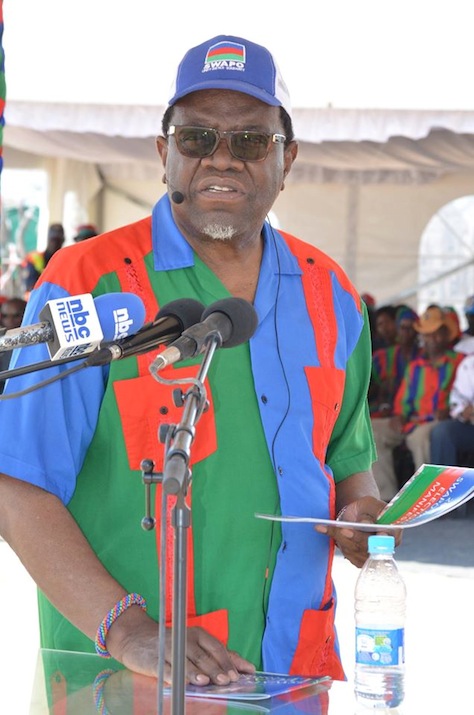Among the far-flung corners of Africa, Namibia doesn’t receive an incredible amount of attention.![]()
That’s largely because it’s one of sub-Saharan Africa’s most economically and politically stable countries. A former German colony and, between World War I and 1990, a territory governed by apartheid South Africa, Namibia won its independence just 24 years ago, and it has avoided many of the post-independence horrors of its neighbors.
Instead, it has become as strong a model for African governance as just about any other country. Linked to the anchor of South Africa’s economy and with a balanced mix of manufacturing, mining (chiefly uranium and diamonds) and agriculture, Namibia developed strong governance institutions. It’s ranked among the least corrupt countries and Africa and, according to Transparency International’s 2013 corruption perceptions index, at No. 57 globally, Namibia does better than many European and Latin American countries. With a GDP per capita of around $5,600, it’s well within the ranks of middle-income countries.
With just 2.1 million people in a country that’s largely filled with sand dunes and desert, Namibia has one of the world’s lowest population densities (second only to Mongolia).
Independence was hard-fought, however, the result of a 24-year war waged by what was then the South West Africa People’s Organization (SWAPO), in reference to Namibia’s colonial name. After 1990, SWAPO reorganized itself as the predominant political party in the newly christened Namibia.
One of SWAPO’s pro-independence leaders, Sam Nujoma, who had lived in exile for nearly three decades, returned to become Namibia’s first democratically elected president from 1990 to 2005. His successor, Hifikepunye Pohamba, has governed Namibia ever since.
Pohamba’s prime minister — and Namibia’s prime minister between 1990 and 2002 — Hage Geingob (pictured above) is almost assured to be the winner in Saturday’s election. Geingob, at age 73, will complete the trio of SWAPO veterans from the independence struggle governing Namibia. During the fight for independence, Geingob led the United Nations Institute for Namibia and, like Nujoma, travelled extensively to make the international case for Namibian independence from South Africa. Unlike Nujoma and Pohamba, Geingob is not part of the Ovambo ethnic group that comprises around half of the country’s population, but instead from the Damara group, which predominates in northwestern Namibia and comprises just 8.5% of the population.
Preliminary results give Geingob around 86.3% of the vote, with just over two-thirds of all votes counted. SWAPO is also expected easily to renew its majority in the unicameral National Assembly. Prior to the election, it held 54 out of 72 elected seats (another six MPs are appointed directly by the president).
Hidipo Hamutenya, a former SWAPO leader who won nearly 11% in the 2009 presidential election, is currently polling well below his 2009 total. Hamutenya left SWAPO in 2004 when he lost the presidential nomination to Pohamba.
Like in many southern African countries, including South Africa, Botswana and Zimbabwe, a political system designed for multiparty competition has been dominated in the decades after independence by the same organization that led their respective struggles for independence. If anything, SWAPO’s position in Namibia is even more dominant than South Africa’s ANC or Zimbabwe’s ZANU-PF because successive SWAPO-led governments have chiefly delivered more stability than in Zimbabwe or even South Africa.
Nevertheless, relatively high rates of unemployment and poverty remain a key challenge for Geingob’s administration, and SWAPO’s increasingly geriatric leadership risks falling out of favor with Namibia’s increasingly youthful population:
According to [Henning Melber, a German-Namibian political science professor at the University of Pretoria in South Africa], solidarity with government policies is not unlimited. “It’s bubbling at the base. Social unrest is on the increase. Criticism within the party, particularly within the Youth League, of the abuse of power is also increasing.” Land ownership has become campaign issue number one. Many Namibians, especially those living in urban areas, can hardly afford apartments and land. In the past few days, SWAPO Youth League spokesman Amupanda has vigorously criticized the government’s land policy. “60 percent of all Namibians are young people. Our leadership is old. We are governed by old people who do not understand the problems of young people. They’re just eager to enrich themselves,” he said.
